‘Alberta has been cheated’: Wexit supporters on what drives them
Freezing temperatures didn’t stop a group of frustrated people from attending a Wexit rally at the Alberta legislature grounds. They explain why they want out.
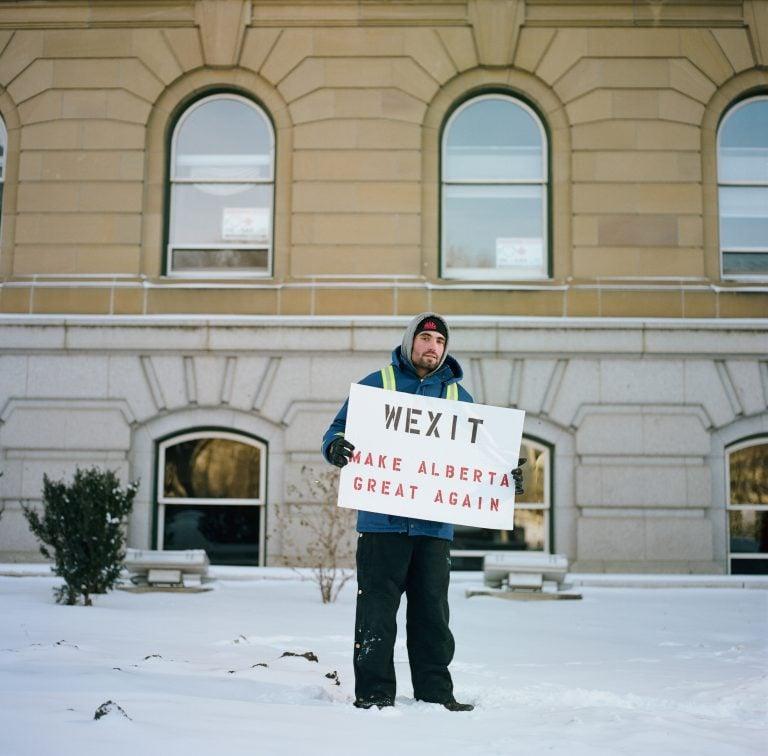
Ben Kruger. (Photograph by Amber Bracken)
Share
On election night in 2019, Saskatchewan, Alberta and interior British Columbia were swept by a sea of blue, with voters overwhelmingly eager for a change in command that would see the ousting of Justin Trudeau as prime minister, and his replacement by Conservative leader Andrew Scheer. Enough was enough, Conservative voters said, of a Liberal government in Ottawa that seemed oblivious to the concerns and real economic hardships of westerners.
But a strong showing for the Liberals in Atlantic Canada and the Greater Toronto Area, coupled with a resurgence of the Bloc in Quebec, meant that, for many western Canadians, the election was once again decided before the count reached the Ontario-Manitoba border. The fact that Conservatives won a majority of the votes in Canada but still lost added insult to injury.
To little surprise, that evening saw the reawakening of western separatism: the idea that if Canada can’t support the oil and gas industry or offer fairer terms on equalization, Alberta (or western Canadian provinces as a collective) should do it alone. Some have even floated the idea of Alberta becoming the 51st state of America. From Facebook feeds to packed party halls in Alberta cities, supporters of “Wexit” sprang up.
That feeling of alienation fuelling the Wexit movement has deep roots in Alberta, dating back to the early 1980s when Trudeau’s father, then-prime minister Pierre Trudeau, implemented the National Energy Program, giving rise to the popular bumper sticker, “Let the eastern bastards freeze in the dark.” Later that decade came Preston Manning’s Reform Party, and its message: “The West wants in.”
Separatism, however, has largely remained a fringe movement. The Independence Party of Alberta (formerly the Alberta Independence Party) was founded in the early 2000s. Before that, there was the now-defunct Western Independence Party (founded in 1988), complete with a flag that represented an autonomous western country made up of British Columbia, Alberta, Saskatchewan and Manitoba, the Yukon and Northwest Territories. But support for Wexit ballooned to a historic high after the 2019 election, according to an Ipsos poll conducted for Global News in November 2019. The poll found that 33 per cent of Albertans supported the western separatist movement, up from 19 per cent in 2001, with a surge in support among those living in Saskatchewan as well.
One of the reasons is the widening gap between East and West. Alberta and Saskatchewan did not elect a single Liberal MP, with the result that both provinces now have zero representation in Trudeau’s cabinet. This is coupled with growing economic woes, including a 23 per cent decline in jobs in Canada’s oil and gas sector since 2014. The federal government’s implementation of bills like the so-called tanker ban, Bill C-48, and C-69, which critics say will create more red tape around bringing Canadian oil to market, has made many western Canadians feel as though Trudeau’s Liberals are actively working against them, and are throwing up roadblocks to delay energy projects like the twinning of the Trans Mountain pipeline.
Prairie deep-freeze temperatures did not prevent a group of frustrated people from coming out to a Wexit rally at the Alberta legislature grounds on Jan. 11, where its leader, Peter Downing, a former RCMP officer and soldier, promised to breathe new life into the western separation movement by establishing Wexit as a federal political party. Supporters listened intently while signatures were being collected—some 8,400 are needed to achieve official party status, and they’re halfway there.
Maclean’s talked with business owners, millwrights and salespeople in the oil and gas industry who attended the rally. Here’s what drives their support for Wexit—in their own words.
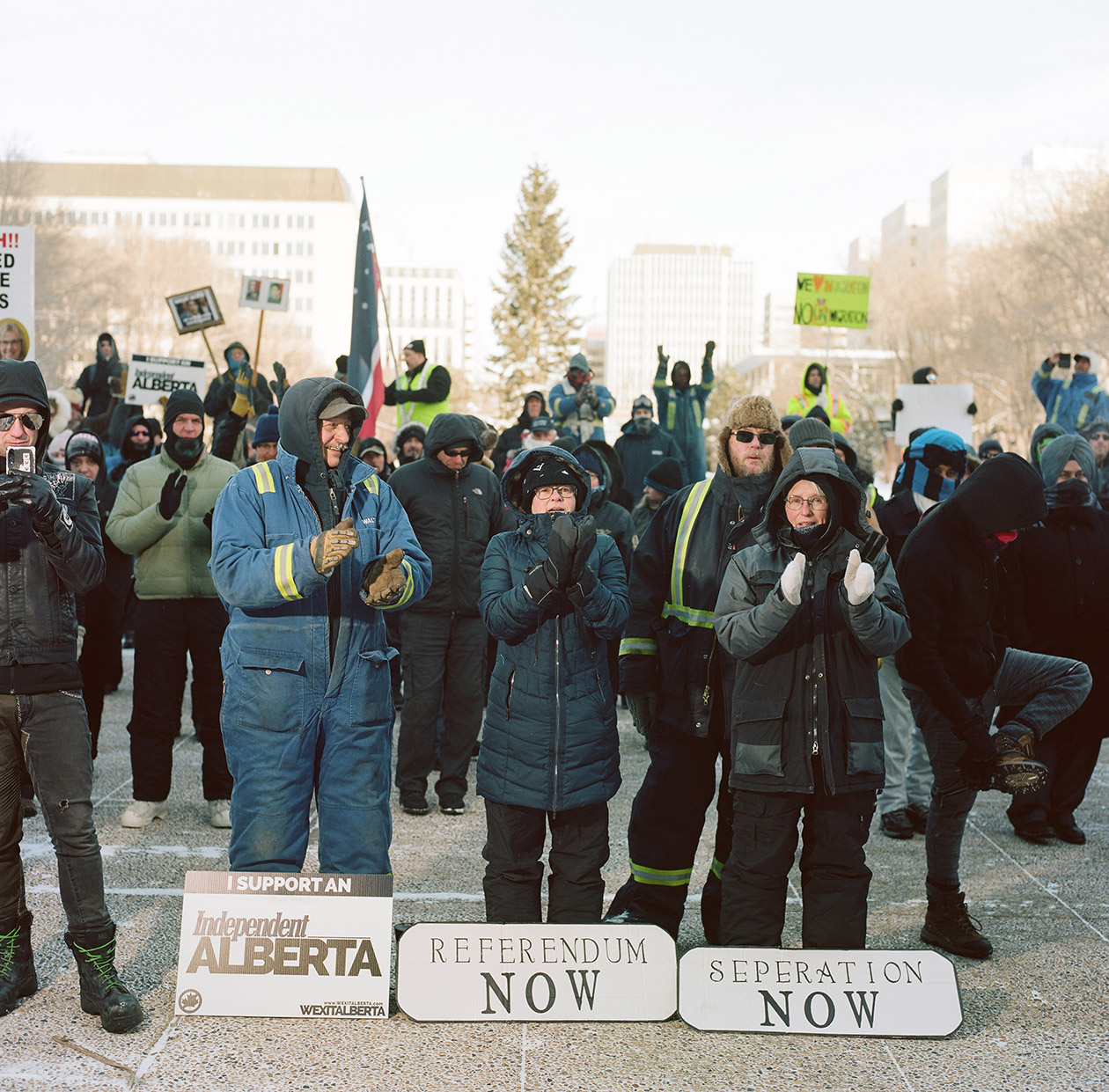
Walter Hunter, 62 (far left)
Hometown: Red Deer, Alta.
Occupation: Building contractor
We try to make it to any and all rallies that we possibly can. [Wexit] is an alternative to the status quo. My personal opinion is professional politicians play political games. Too many people here in the West are out of work, and politicians get paid whether they work or not. Everyone in Alberta has been affected. Everyone from servers in restaurants to anyone who works in the patch. I was in Fort McMurray between 2005 and 2011 helping to build those plants. Our natural resources drive this country. When I was up there in Fort McMurray, the whole world was there—people from different countries. The economy of Alberta was looking after all of Canada and quite a bit of North America. When we have a federal party that wants to destroy that—they don’t care about the people—we’re going to do our small part to see that Wexit achieves its goals, and make great changes here in Alberta.
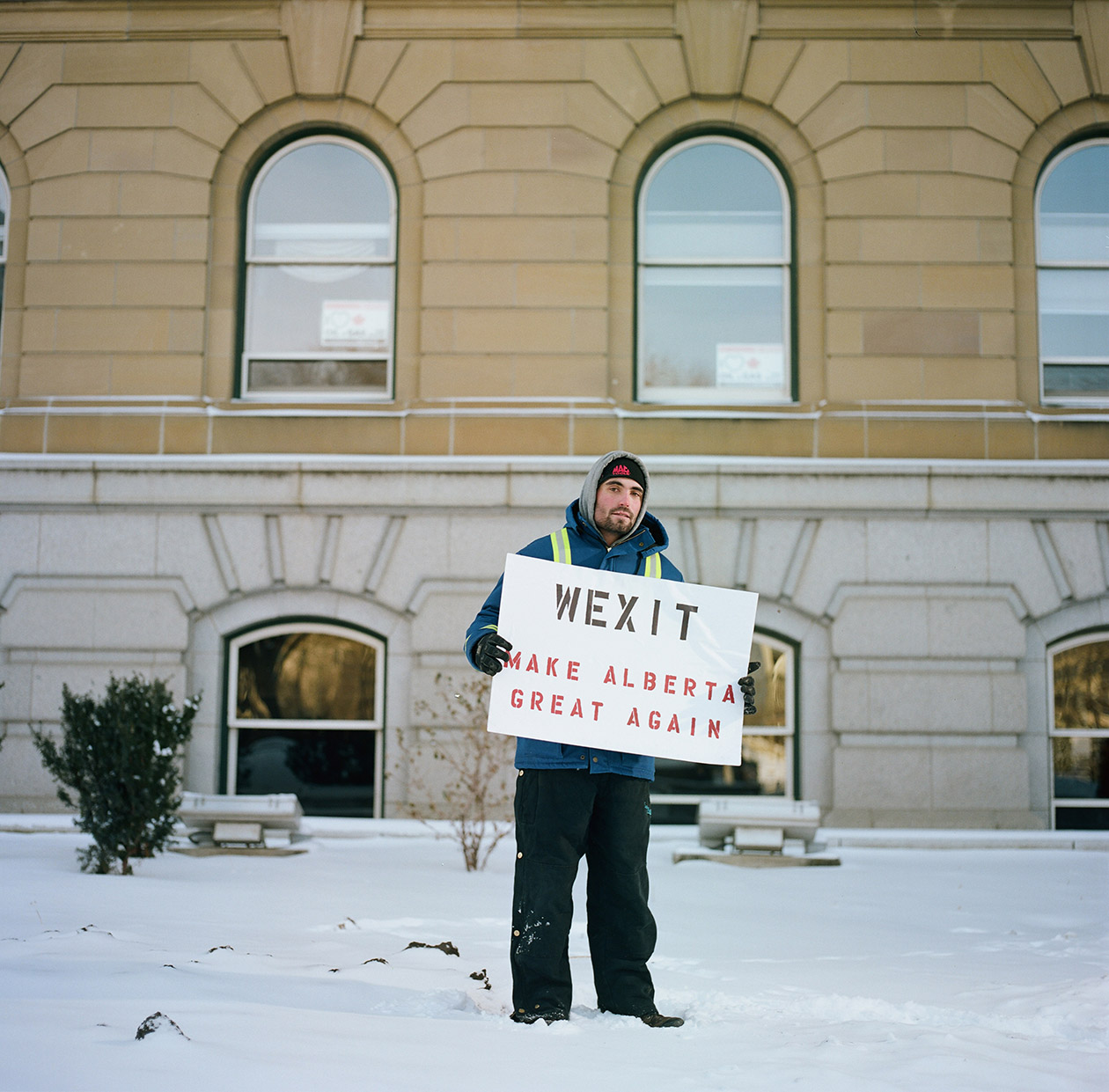
Ben Kruger, 24
Hometown: Calmar, Alta.
Occupation: Sales at an oil and gas company
I started out as an apprentice, heavy duty mechanic and welder when I was 16 years old, working in Nisku. Then I got laid off in 2015 when we had the first big economic downturn. I ended up out of work for 14 months. I find myself very unhappy with the current Liberal government. I’ve seen my friends, my family and my community get laid off. I’ve seen such a huge downturn in business generally. And I’m seeing the oil industry being very unfairly targeted by the federal government with the carbon tax, which there is absolutely no reason for. To me, Canada is the third-largest oil producer with the cleanest industry in the world. If Alberta were to separate and if the West were to separate, we can be more for ourselves and more for our own industry. We wouldn’t be funding the East, we wouldn’t have equalization payments to Quebec, and we wouldn’t have Trudeau enforcing taxes and sanctions on us. Right up until the last election, I’d been a steadfast Conservative voter, but I’ve seen so much more division within the federal Conservative party. When you look at the controversy around Andrew Scheer stepping down, there just seems to be so much division there. The Conservative Party is not for Alberta. They’re not enough to protect our industry and our jobs.
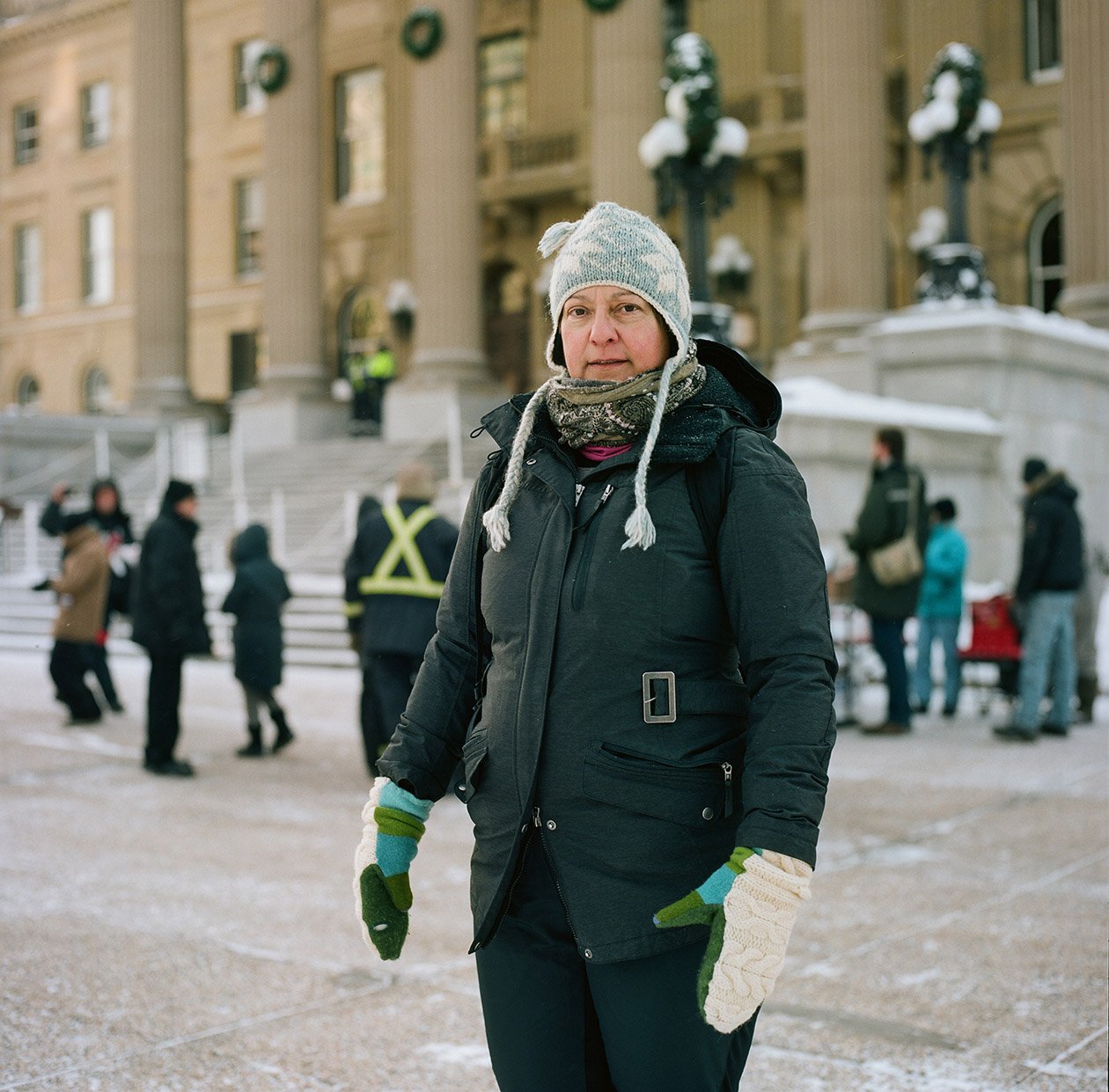
Mary Melzer, 59
Hometown: Canmore, Alta.
Occupation: Owner of a homemade soap company
Once the Liberals won, I realized what a mess our country is in. Our country is an absolute disaster right now, mostly because I’m a fiscal conservative and progressive on other issues. To me, the federal debt is absolutely frightening—it’s out of control. Leaving that debt to our children is detrimental. It feels like the Liberals are undermining everything. Our resource industry is on its knees, and it’s picked up a bit since Kenney came in, but they definitely killed the jobs in the West. With SNC-Lavalin, there’s criminal activity that isn’t being taken care of, and it’s being swept under the rug. Western alienation has come out of this government. It’s a direct result of how poor the Liberal government takes care of the West. It just seems like nobody really cares. My husband builds homes—he’s a framer. Oil workers have been most of our purchasers and clients, and the slowdown has affected us as a family. It seems pretty quiet in Canmore. The work has been cut in half over the last five years, easily. Alberta has been cheated.
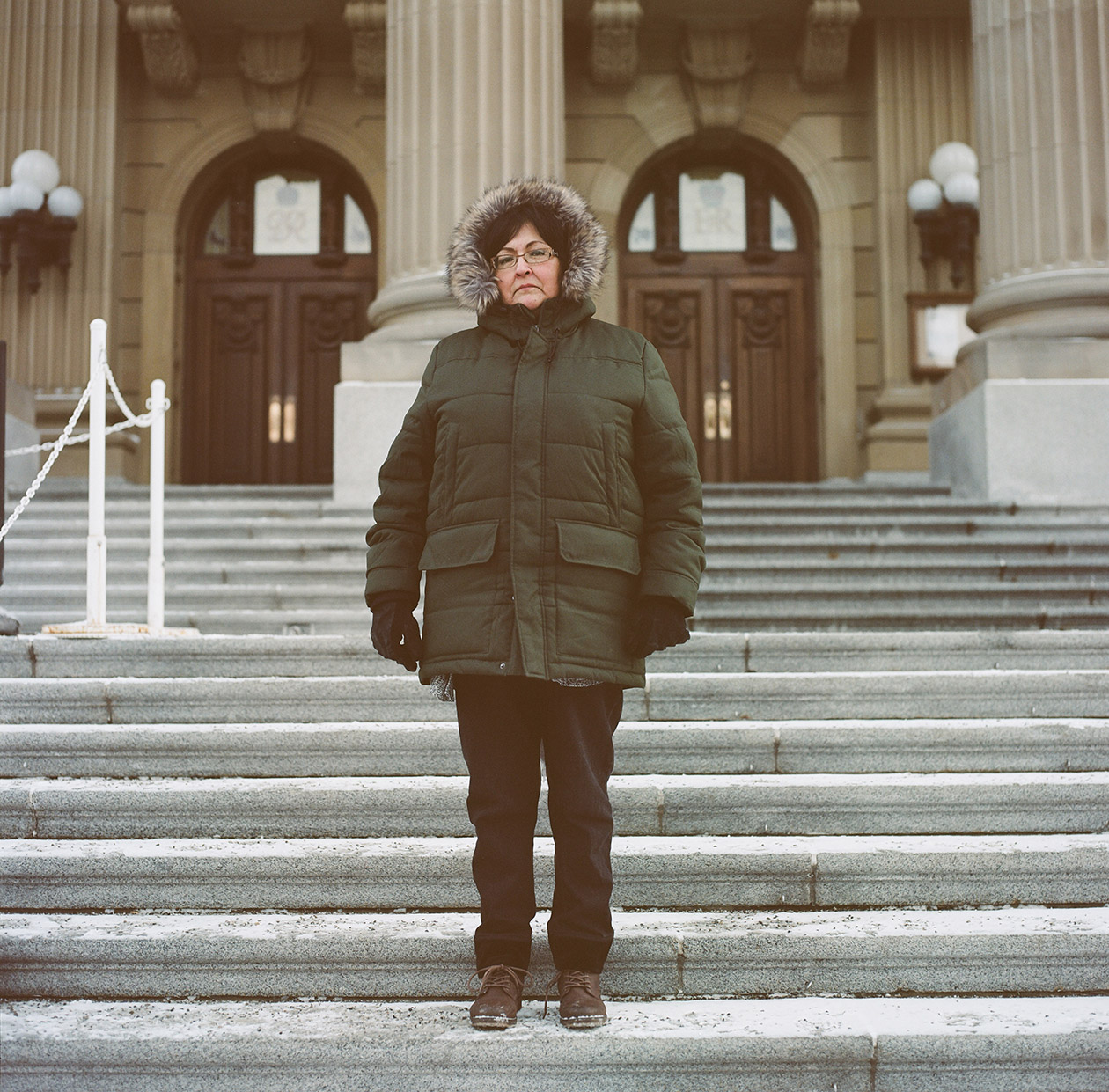
Virginia Bruneau, 55
Hometown: Cold Lake First Nation
Occupation: Owner of Tu-Kanatan Inc., a water business addressing water and housing infrastructure on First Nations reserves
The First Nations people were not included in any talks from the get-go at the federal level. There was supposed to be a [trilateral] agreement between the federal level, the provincial level and First Nations. It’s never happened, and my motivation is to find a party that will listen and adhere to the First Nations people of Alberta. What drove me was that I saw the need to have clean drinking water on First Nations reserves, and nobody was addressing this. There’s a lot of talk, but there’s no agreement between the three levels of government. My husband has contributed to Alberta’s tax dollars and has worked as a driver for a moving company for many years. I know what it’s like to work hard. I have six children. To have a party like Wexit Alberta stand for First Nations is very appealing to me, and it should be a concern for all Albertans and all Canadians to have clean drinking water, which is a basic necessity for any person to live in Canada. It would be very attractive to the First Nations people once they see that we won’t be treating them like inferior people anymore. We will not be treating them lesser than the precious people that they are. Fixing their water and housing infrastructure on reserves—that’s what Wexit is about.
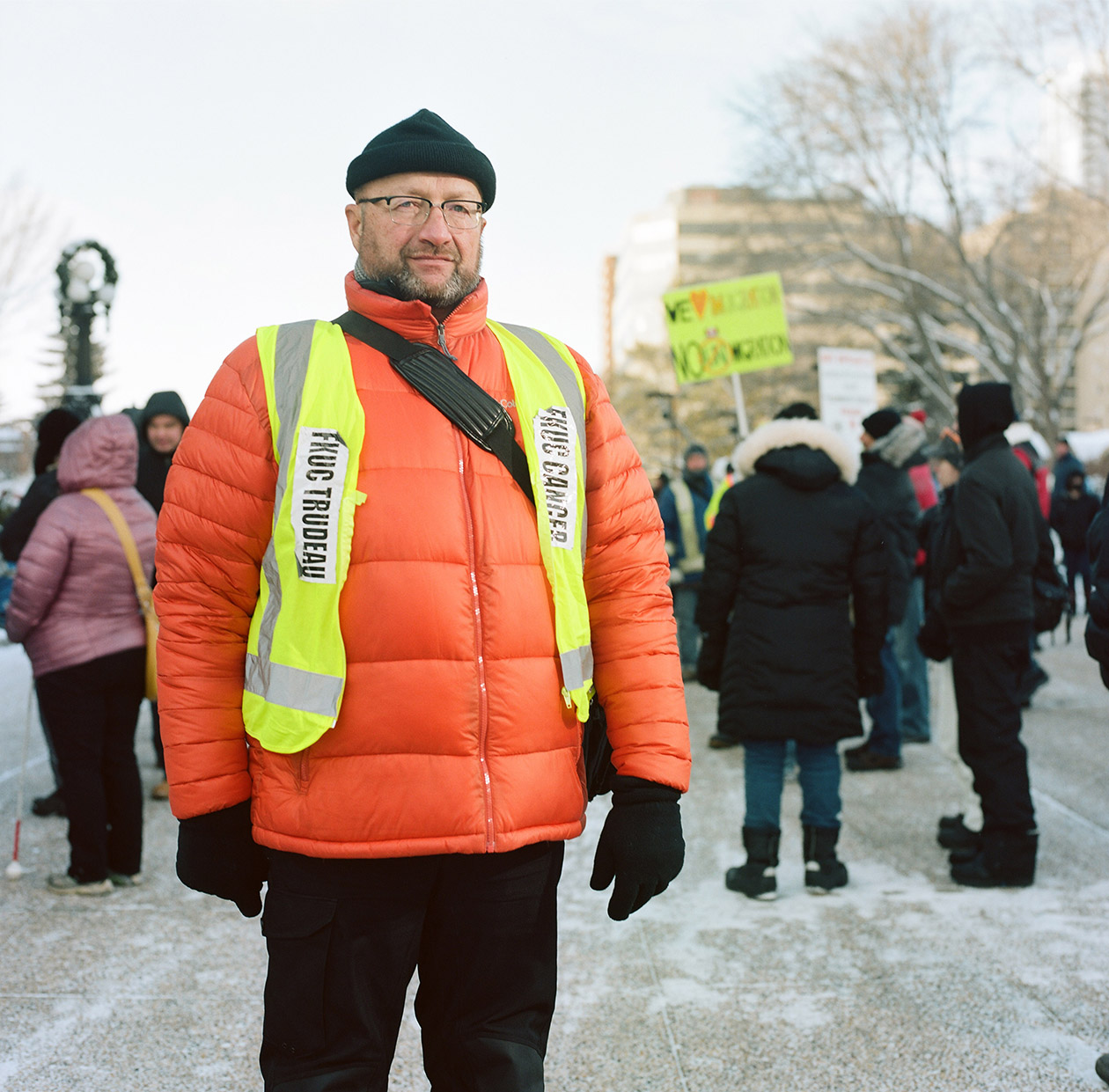
Al Neitsch, 57
Hometown: Airdrie, Alta.
Occupation: On extended disability; previously worked as a manager at Loblaws and Rona
I have been retired for the last two and a half years. I’ve been very ill; I have a very rare form of cancer. Throughout treatment I’ve had time to look at things, listen, and see what’s going on in Canada and this province. I haven’t really liked what I’m seeing and hearing. In Alberta specifically, the Conservatives were in power, and the only thing that caught my attention toward the end of their role was the hypocrisy coming from the Alison Redford government, and the misuse of public money. I voted for the NDP because Rachel Notley was talking a good game, and I thought it was time for a change from the status quo. It didn’t take long for me to regret that decision. Things got progressively worse.
I’m intrigued by the idea of separation. In conjunction with other like-minded provinces that are feeling alienated, like Saskatchewan, most of Manitoba and parts of northern B.C., we’d be taking this Liberal, woke, globalist culture out of our equation, because that’s what’s dragging us down along with our regional economy and our employment rates. Alberta has the ability to achieve an economy like that of Norway. We have the population, geography, geology and the resources. Is it going to happen overnight? No. But it’s certainly sending a message out there, whether they choose to listen or not, that there are a lot of people that are unhappy in Confederation. I see separation as a viable option, especially for my children. My days are numbered, but as far as my two daughters—one who has a degree in geomatics, and another who has another year left in psychology—I’d like for a more hopeful situation for them. When and if Alberta separates, it’s going to be a more level playing field for young people entering the job market.
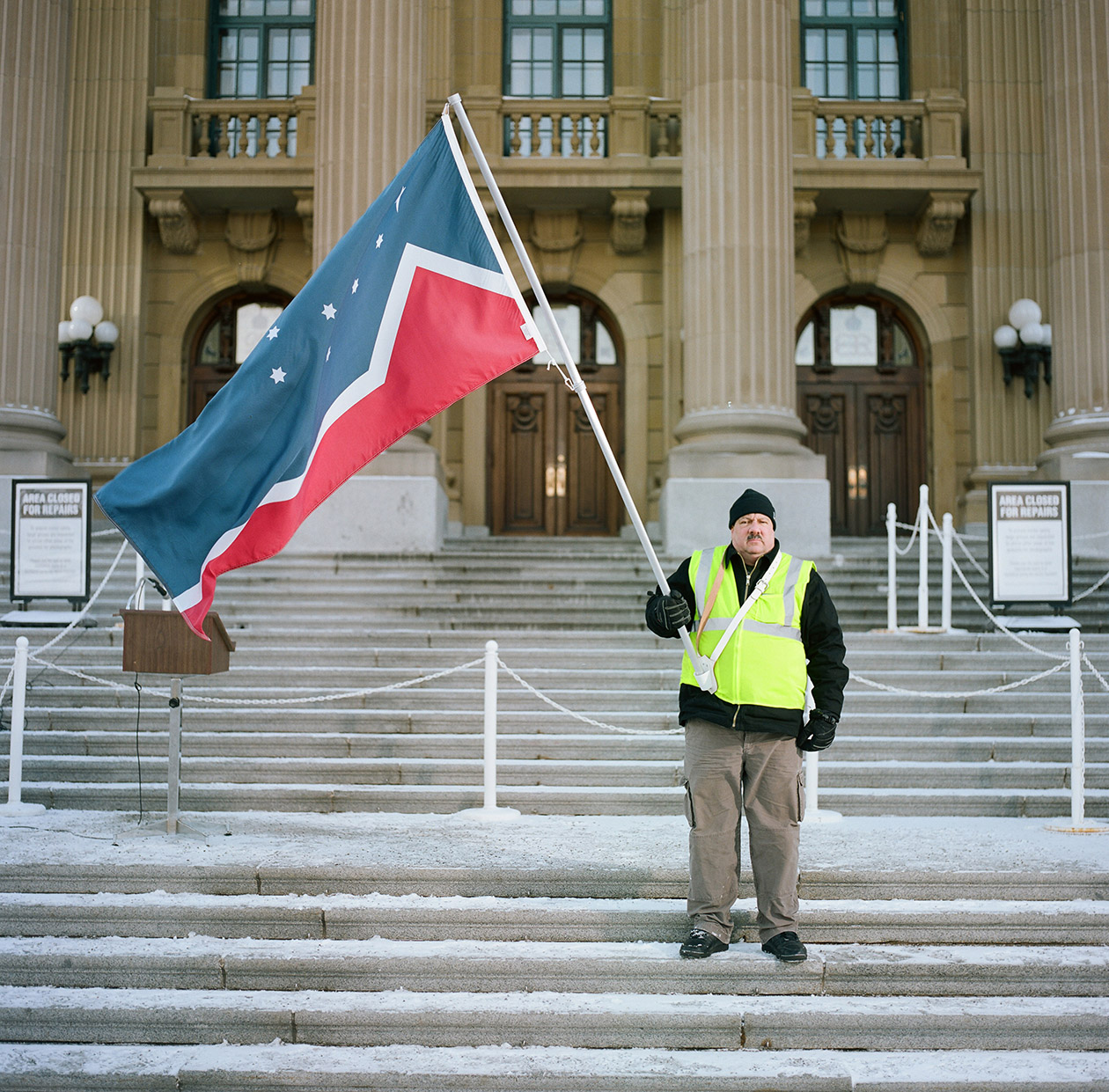
Darren Esayenko, 54
Hometown: Calgary
Occupation: Journeyman machinist and millwright
I’ve always expected the separatist movement to reignite. We’ve just been biding our time—waiting for it to appear in the limelight and for people to become more interested. I belong to a trade union, and right now, there are a number of us who are unemployed because the industry has slowed right down due to this pipeline fiasco that is going on. My line is, “Free the West.” I want a new nation. I am a dyed-in-the-wool Albertan; my allegiance has always been primarily to Alberta, not to Canada. This is where I grew up, this is where I was born and raised. I want Alberta to be a sovereign country, or I want to see Western Canada as a confederation of states in a greater republic of Western Canada. I want us to be divorced from or moved away from the Laurentian elite establishment that is in Eastern Canada that has been more or less using us as a resource-producing colony and a place to extract undue taxation. I can’t tell you how many elections I’ve sat through in my lifetime. I turn on the TV when they used to have blackouts before the internet came in. The host would say, “And we apologize to the viewers of Alberta, we’ve just elected yet another majority Liberal government.” In other words, “Guess what, Albertans? You don’t matter. Your destiny, your hopes and aspirations for your area, doesn’t matter. You’re along for the ride, you keep quiet, you just go along with what we want to do and be ready to supply the money we want—the oil, the agricultural produce, and everything else.
This article appears in print in the March 2020 issue of Maclean’s magazine with the headline, “The westerners who want out.” Subscribe to the monthly print magazine here.